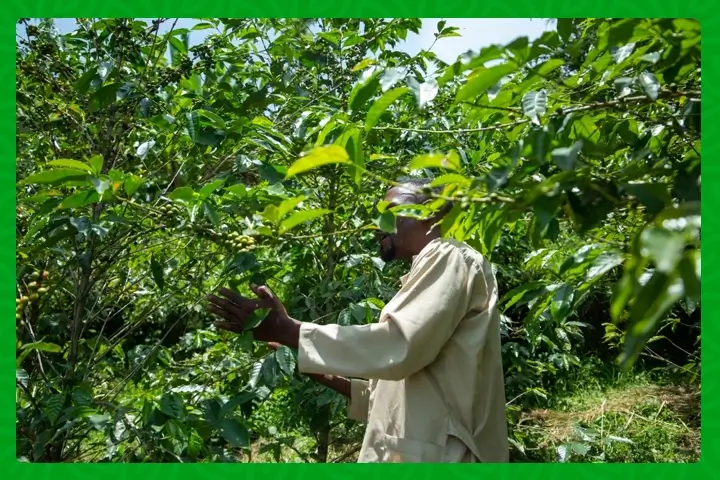
In the lush highlands of Rwanda, where the aroma of freshly brewed coffee mingles with the crisp mountain air, a quiet revolution is underway. The National Agricultural Export Development Board (NAEB) is spearheading an initiative to rejuvenate Rwanda’s coffee industry by replacing aging trees with new, high-yielding varieties. This ambitious endeavor promises not only to increase coffee production but also to elevate Rwanda’s status as a leading coffee exporter on the global stage.
Unlocking the Potential:
According to experts at NAEB, replacing aging coffee trees presents a golden opportunity to significantly enhance coffee yields. Faustin Kabasha, a specialist in coffee pest and disease control, affirms that this intervention could potentially triple the yield per tree, soaring from the current modest 2 kilograms to an impressive 7-10 kilograms. Such a surge in productivity holds the key to revitalizing Rwanda’s coffee sector, offering farmers the promise of greater prosperity and sustainability.
Overcoming Reluctance:
Despite the promising prospects, some farmers remain hesitant to embrace this transformation. Anathalise Musengimana, a member of the Dukunde Kawa Musasa cooperative, highlights a prevailing reluctance among farmers, citing concerns about the time it takes for new varieties to mature. However, a study by the London School of Economics reveals that the majority of Rwandan farmers are willing to embrace change, with up to 86% expressing readiness to replace aging trees with support.
Tackling the Challenge Head-On:
Recognizing the urgency of the situation, Rwanda Agriculture Board (RAB) has been actively incentivizing the adoption of new coffee varieties, such as the RAB C15. This concerted effort aims to address one of the primary obstacles hampering productivity in the country – the prevalence of aging coffee trees. Minister of Trade and Industry, Jean Chrysostome Ngabitsinze, underscores the imperative of this initiative, emphasizing the detrimental impact of aging trees on coffee processing factories operating at suboptimal capacity.
A Sustainable Path Forward:
In alignment with the broader vision of sustainable agriculture, NAEB emphasizes the importance of promoting climate-resilient practices. Sandrine Urujeni, Chief Operations Officer at NAEB, underscores the significance of integrating trees with other crops to enhance resilience to climate change. This holistic approach not only safeguards against environmental risks but also fosters long-term sustainability in coffee production.
Driving Economic Growth:
The implications of this initiative extend far beyond the borders of Rwanda. By rejuvenating aging coffee trees and ramping up production, Rwanda stands poised to significantly bolster its coffee exports. With over 30 million coffee trees slated for replacement, NAEB’s ambitious $62.89 million project holds the promise of transforming the fortunes of smallholder farmers across the nation. Moreover, by diversifying export markets to include regions like China and the UAE, Rwanda is poised to amplify its presence on the global coffee stage.
In conclusion, the initiative to replace aging coffee trees represents a watershed moment for Rwanda’s coffee industry. By embracing innovation, sustainability, and resilience, Rwanda is charting a course towards a brighter future for its coffee sector. As the aroma of freshly brewed Rwandan coffee permeates cafes and homes around the world, it serves as a testament to the country’s unwavering commitment to excellence, sustainability, and progress.
Original article written by Patrick Nzabonimpa – Michel Nkurunziza
Stay updated with the latest farming tips and agriculture industry news from Africa by subscribing to our newsletter. Don’t miss out on valuable insights and updates. Follow us on Twitter, LinkedIn, and Facebook to join our farming community and stay connected with us.



















